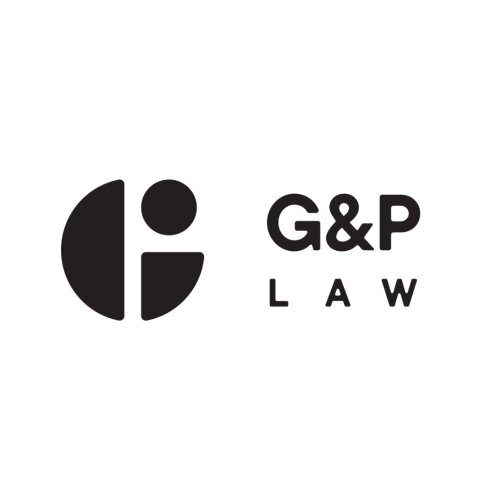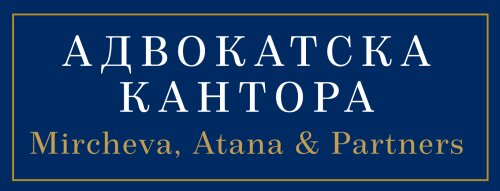Best Employment Rights Lawyers in Sofia
Share your needs with us, get contacted by law firms.
Free. Takes 2 min.
List of the best lawyers in Sofia, Bulgaria
About Employment Rights Law in Sofia, Bulgaria
Employment rights law in Sofia, Bulgaria aims to protect the interests of employees and ensure fair treatment in the workplace. The legal landscape is governed by both national labor laws and European Union regulations, providing a comprehensive framework to address various employment-related issues. Key areas include employment contracts, working conditions, wages, discrimination, and dispute resolution. Through these laws, Bulgaria seeks to create a balanced working environment that respects both employee and employer rights.
Why You May Need a Lawyer
There are numerous situations where you may require legal assistance in employment rights. Common issues include unjust termination, workplace discrimination, harassment, disputes over wages and working conditions, contract negotiations, and breaches of employment contracts. A lawyer specializing in employment law can help navigate these issues by offering valuable legal advice, representation in disputes, and assistance in understanding your rights and obligations under Bulgarian and EU law.
Local Laws Overview
The key aspects of employment rights laws in Sofia, Bulgaria, include:
- Labor Code: The main legal document governing employment relationships. It covers various aspects, including employment contracts, working hours, and termination procedures.
- Anti-Discrimination Laws: Laws that protect employees from discrimination based on gender, age, race, religion, disability, and other factors.
- Minimum Wage Regulations: The government establishes minimum wage standards that must be adhered to by all employers.
- Health and Safety at Work: Regulations ensure that working conditions meet certain safety standards to protect employees.
- Collective Bargaining: Laws that facilitate collective bargaining and protect the rights of workers to unionize and negotiate collectively.
Frequently Asked Questions
What are my basic rights as an employee in Sofia?
Your basic rights as an employee include the right to a written employment contract, fair wages, safe working conditions, protection from discrimination and harassment, and the right to collective bargaining.
How is the minimum wage determined in Bulgaria?
The minimum wage is set by the Bulgarian government and reviewed periodically. It applies universally to all employees and ensures fair compensation for work performed.
What should I do if I experience discrimination at work?
If you face discrimination at work, you should document the incidents and report them to your employer or the appropriate governmental body. Consulting with a lawyer can help you understand your legal options.
Can my employer terminate my contract without notice?
Under Bulgarian law, employers can generally terminate contracts but must provide a valid reason and notice period as stipulated in the employment contract and Labor Code.
How are overtime payments regulated?
Overtime must be compensated according to the regulations outlined in the Labor Code, which typically includes higher pay rates for hours worked beyond the standard working hours.
What actions can I take if my employer does not pay my salary on time?
You should first address the issue with your employer. If not resolved, legal options include filing a complaint with the Labor Inspectorate or engaging a lawyer to pursue a claim.
Are verbal employment agreements legally binding in Bulgaria?
While verbal agreements can be binding, Bulgarian law requires written contracts for employment relationships to ensure clarity and protect both parties.
How do I know if my working conditions are legally compliant?
Your employer is obligated to comply with health and safety regulations. You can request information from your employer and contact the Labor Inspectorate for compliance inquiries.
What is the process for collective bargaining in Sofia?
Employees have the right to form or join trade unions and engage in collective bargaining to negotiate improvements in wages, working conditions, and other employment terms.
How can I resolve a labor dispute with my employer?
Labor disputes can be resolved through negotiation, mediation, or litigation. Consulting with a lawyer experienced in employment rights can provide guidance based on your specific situation.
Additional Resources
Individuals seeking further information or assistance with employment rights can consider the following resources:
- The Ministry of Labor and Social Policy: Oversees employment and labor standards.
- The Labor Inspectorate: Handles compliance with labor laws and regulations.
- The Bulgarian Helsinki Committee: Provides support and advocacy for human rights issues.
- Local trade unions: Offer guidance on workers' rights and collective bargaining processes.
Next Steps
If you believe you require legal assistance with employment rights in Sofia, Bulgaria, consider taking the following steps:
- Document all relevant information related to your employment issue, including contracts, communications, and any incidents of concern.
- Consult with a lawyer specializing in employment law to evaluate your case and receive professional advice.
- Reach out to governmental bodies like the Labor Inspectorate or Ministry of Labor for additional guidance.
- Explore the potential for mediation or negotiation to resolve issues without litigation.
- If necessary, prepare to pursue your case through the appropriate legal channels with the assistance of your lawyer.
Lawzana helps you find the best lawyers and law firms in Sofia through a curated and pre-screened list of qualified legal professionals. Our platform offers rankings and detailed profiles of attorneys and law firms, allowing you to compare based on practice areas, including Employment Rights, experience, and client feedback.
Each profile includes a description of the firm's areas of practice, client reviews, team members and partners, year of establishment, spoken languages, office locations, contact information, social media presence, and any published articles or resources. Most firms on our platform speak English and are experienced in both local and international legal matters.
Get a quote from top-rated law firms in Sofia, Bulgaria — quickly, securely, and without unnecessary hassle.
Disclaimer:
The information provided on this page is for general informational purposes only and does not constitute legal advice. While we strive to ensure the accuracy and relevance of the content, legal information may change over time, and interpretations of the law can vary. You should always consult with a qualified legal professional for advice specific to your situation.
We disclaim all liability for actions taken or not taken based on the content of this page. If you believe any information is incorrect or outdated, please contact us, and we will review and update it where appropriate.















